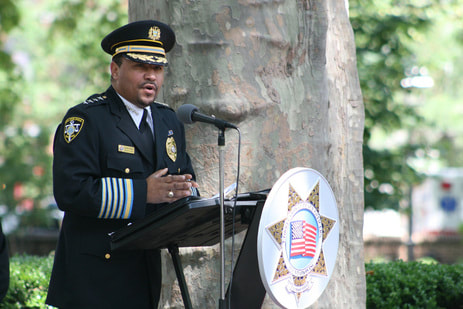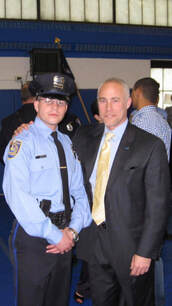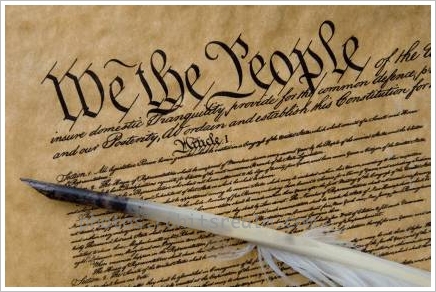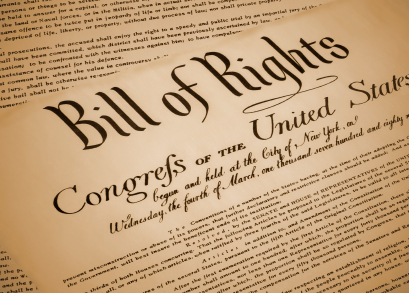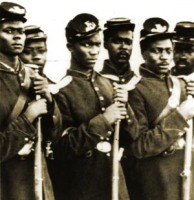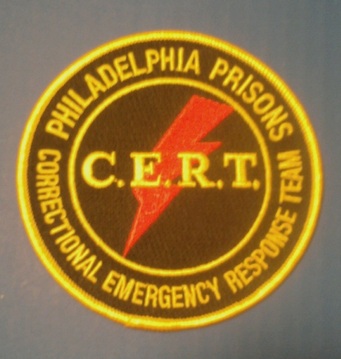|
Mr. King has over 30 years of experience working to solve issues surrounding the United States Constitution and making sure that its precepts, especially those enumerated in the Bill of Rights, are obeyed by government officials, and defending those same officials when they were falsely sued for violating the Constitution. Mr. King also has extensive experience in writing and developing polices to help governments avoid liability by making sure their employees are aware of Constitutional requirements. Mr. King can use this knowledge to advocate and win a settlement or judgment for the violation of your rights by law enforcement. For many years, Mr. King was a lecturer at the Philadelphia Police Academy and the Philadelphia Prisons Training Academy. He also served as a Deputy City Solicitor for Civil Rights and Labor for the City of Philadelphia, and as General Counsel to the 5th largest jail system in the United States. He has represented hundreds of police officers, deputy sheriffs, correctional officers and employees of the juvenile justice system in the City of Philadelphia. He has tried numerous cases to verdict in the United States District for the Eastern District of Pennsylvania, developing expertise in Constitutional law as applied to law enforcement. As Commissioner of the Philadelphia Prison System, and a Deputy Commissioner in the Maryland Department of Public Safety and Correctional Services, he was also responsible for implementation and oversight of the very policies he wrote or helped to write. After over 14 years as General Counsel, Commissioner, and Deputy Commissioner, he became an expert in the area of corrections, the operation of correctional facilities, and the applicable Constitutional law. Finally, as a result of his time spent working with the City Council of Philadelphia and the rest of his combined experience, Mr. King is also very familiar with the limits the Constitution places on all agencies and departments of municipal and state governments.
Mr. Resnick has been working with Mr. King for almost 30 years in the same capacities, from defending law enforcement in civil rights actions, to being the top administrator for the police, fire, and prisons departments of the City of Philadelphia as the City’s Director of Public Safety. We know of no other civil rights attorneys in the United States who bring this type of extensive expertise and experience to bear in civil rights litigation. So whether it’s your local Parking Authority, Department of Licenses and Inspection, Nuisance Task Force, Police Department, jail or prisons, the State Police, the Liquor Control Board, local tax authority, or any other City or state agency, the Law Offices of Leon A. King II, Attorneys and Counselors at Law, is the place where you will get un unprecedented level of experience and protection. Likewise, law enforcement agencies and their employees face the daunting task of carrying out their duties in our increasingly litigious society. Frivolous lawsuits abound, filed either by attorneys, or by individuals who represent themselves and are unfamiliar with the Constitution and the laws that apply. We will also represent law enforcement agencies and their personnel, and any agency falsely accused of violating the Constitution. |
|
"The Law of the Constitution - The Civil Rights Act of 1871"
|
The United States Constitution grants the government certain authority over the lives of each citizen in the United States. However, shortly after it was adopted in 1787, the Founding Fathers realized that it needed some changes to make sure that all of us had certain rights that were guaranteed no matter what. Thus in 1789, the Constitution underwent its first changes or amendments. The first 10 amendments are now commonly referred to as the Bill of Rights. The Bill of Rights protects such things as the right to be free from unreasonable searches and seizures (e.g., false arrest, illegal searches), the right of free speech, the right not to be deprived of life, liberty or property without due process of law, and the right to bear arms.
After the Civil War, the Bill of Rights was explicitly made applicable to state and local governments as well. In an effort to aid the plight of the recently freed slaves, Congress made it possible to sue the government for monetary damages by passing the Civil Rights Act of 1871, over the veto of then President Andrew Johnson. Ironically enough, it was the Republican controlled Congress through the passage of this legislation (also referred to as the Ku, Klux Klan Act) that made it possible for all Americans to sue the government and request compensation for the violation of their civil rights. These parts of the Civil Rights Act were codified at 42 U.S.C., Sections 1983, and 1985, and they read, in relevant part, as follows: "Every person who under color of any statute, ordinance, regulation, custom, or usage, of any State or Territory or the District of Columbia, subjects, or causes to be subjected, any citizen of the United States or other person within the jurisdiction thereof to the deprivation of any rights, privileges, or immunities secured by the Constitution and laws, shall be liable to the party injured in an action at law, Suit in equity, or other proper proceeding for redress..." 42 U.S.C., § 1983 "If two or more persons in any State or Territory conspire or go in disguise on the highway or on the premises of another, for the purpose of depriving, either directly or indirectly, any person or class of persons of the equal protection of the laws, or of equal privileges and immunities under the laws; . . .if one or more persons engaged therein do, or cause to be done, any act in furtherance of the object of such conspiracy, whereby another is injured in his person or property, or deprived of having and exercising any right or privilege of a citizen of the United States, the party so injured or deprived may have an action for the recovery of damages occasioned by such injury or deprivation, against any one or more of the conspirators." 42 U.S.C. § 1985(3). |
Some Noteworthy Cases Litigated
Citizen Plaintiff Clients
Corruption, conspiracy, Funaro, et al, v. City of Philadelphia, Department of Licenses and Inspection, Deputy Commissioner Dominic Verdi, et al., U.S. District Court
False arrest, corruption, Correctional Officer Denise Bentley v. City of Philadelphia, Police Officer Devora Waters, et al., U.S. District Court
Private Conspiracy, Brome v. City of Philadelphia & Ruth Eldridge, Pre-suit
Law Enforcement Defendant Clients
Massive police corruption, in re 39th Police District Litigation, U.S. District Court
Prison overcrowding class action, Harris v. Reeves, U.S. District Court
Police shootings, McCleod v. City of Philadelphia¸ U.S. District Court
Police sexual harassment and retaliation, Carter- Herman v. Philadelphia Police Department, U.S. District Court
Juvenile detention overcrowding class action¸ Santiago v. City of Philadelphia, U.S. District Court
Prison conditions class action, Jackson v. Hendrick, Philadelphia Court of Common Pleas
Police racial profiling, crowd control, use of force, Martin v. City of Philadelphia, U.S. District Court;
Court records and illegal detention, Warrington v. City of Philadelphia, U.S. District Court
False arrest and bribery of a public official, Bell v. City of Philadelphia, U.S. District Court
Jail suicide, Owens v. City of Philadelphia
Improper identification, false arrest, Olabode v. City of Philadelphia, U.S. District Court
Constructive possession ($2.1 million worth of heroin), consent searches, Nweese v. City of Philadelphia
Corruption, conspiracy, Funaro, et al, v. City of Philadelphia, Department of Licenses and Inspection, Deputy Commissioner Dominic Verdi, et al., U.S. District Court
False arrest, corruption, Correctional Officer Denise Bentley v. City of Philadelphia, Police Officer Devora Waters, et al., U.S. District Court
Private Conspiracy, Brome v. City of Philadelphia & Ruth Eldridge, Pre-suit
Law Enforcement Defendant Clients
Massive police corruption, in re 39th Police District Litigation, U.S. District Court
Prison overcrowding class action, Harris v. Reeves, U.S. District Court
Police shootings, McCleod v. City of Philadelphia¸ U.S. District Court
Police sexual harassment and retaliation, Carter- Herman v. Philadelphia Police Department, U.S. District Court
Juvenile detention overcrowding class action¸ Santiago v. City of Philadelphia, U.S. District Court
Prison conditions class action, Jackson v. Hendrick, Philadelphia Court of Common Pleas
Police racial profiling, crowd control, use of force, Martin v. City of Philadelphia, U.S. District Court;
Court records and illegal detention, Warrington v. City of Philadelphia, U.S. District Court
False arrest and bribery of a public official, Bell v. City of Philadelphia, U.S. District Court
Jail suicide, Owens v. City of Philadelphia
Improper identification, false arrest, Olabode v. City of Philadelphia, U.S. District Court
Constructive possession ($2.1 million worth of heroin), consent searches, Nweese v. City of Philadelphia
